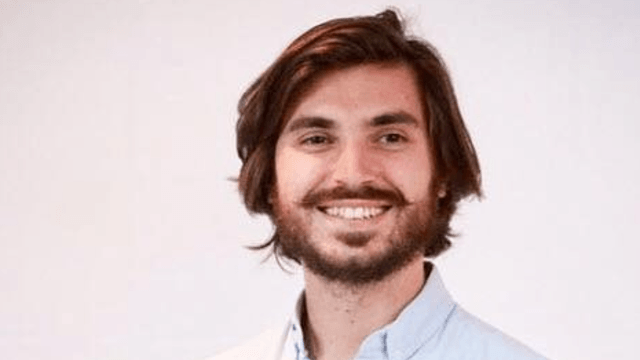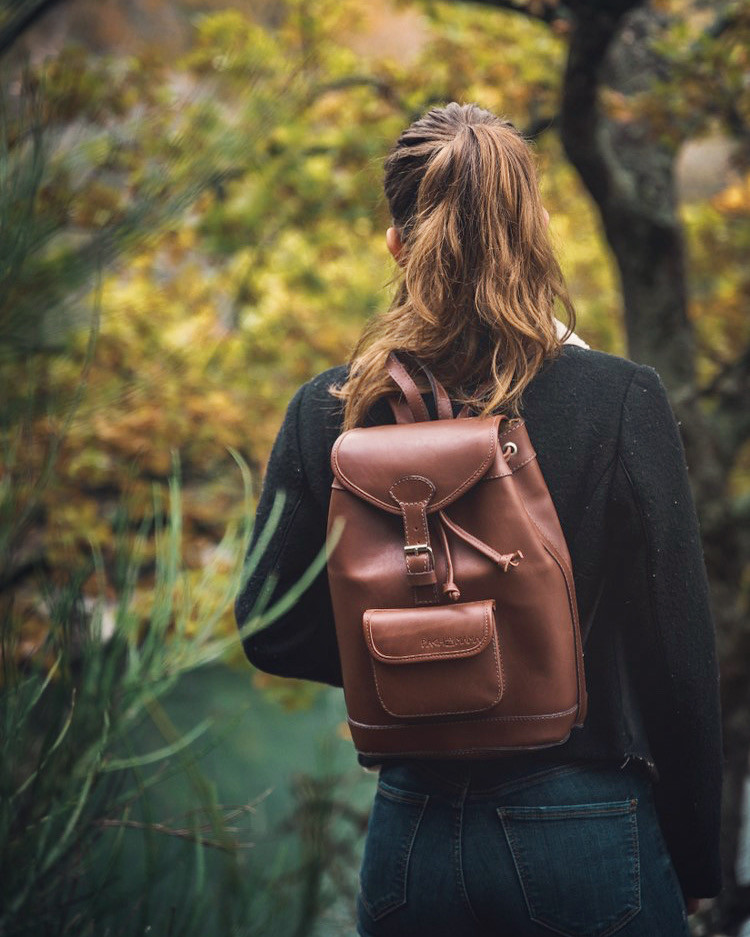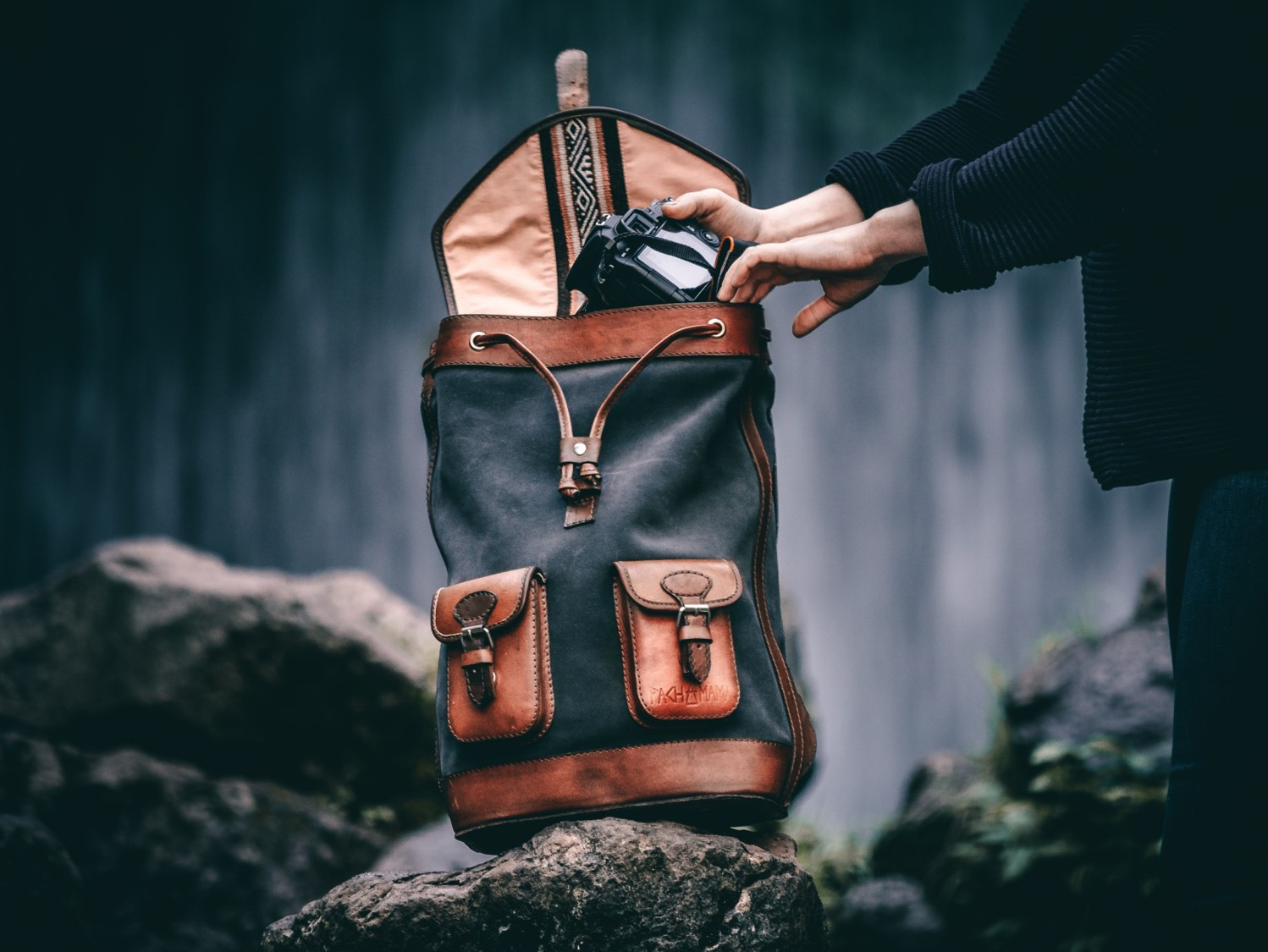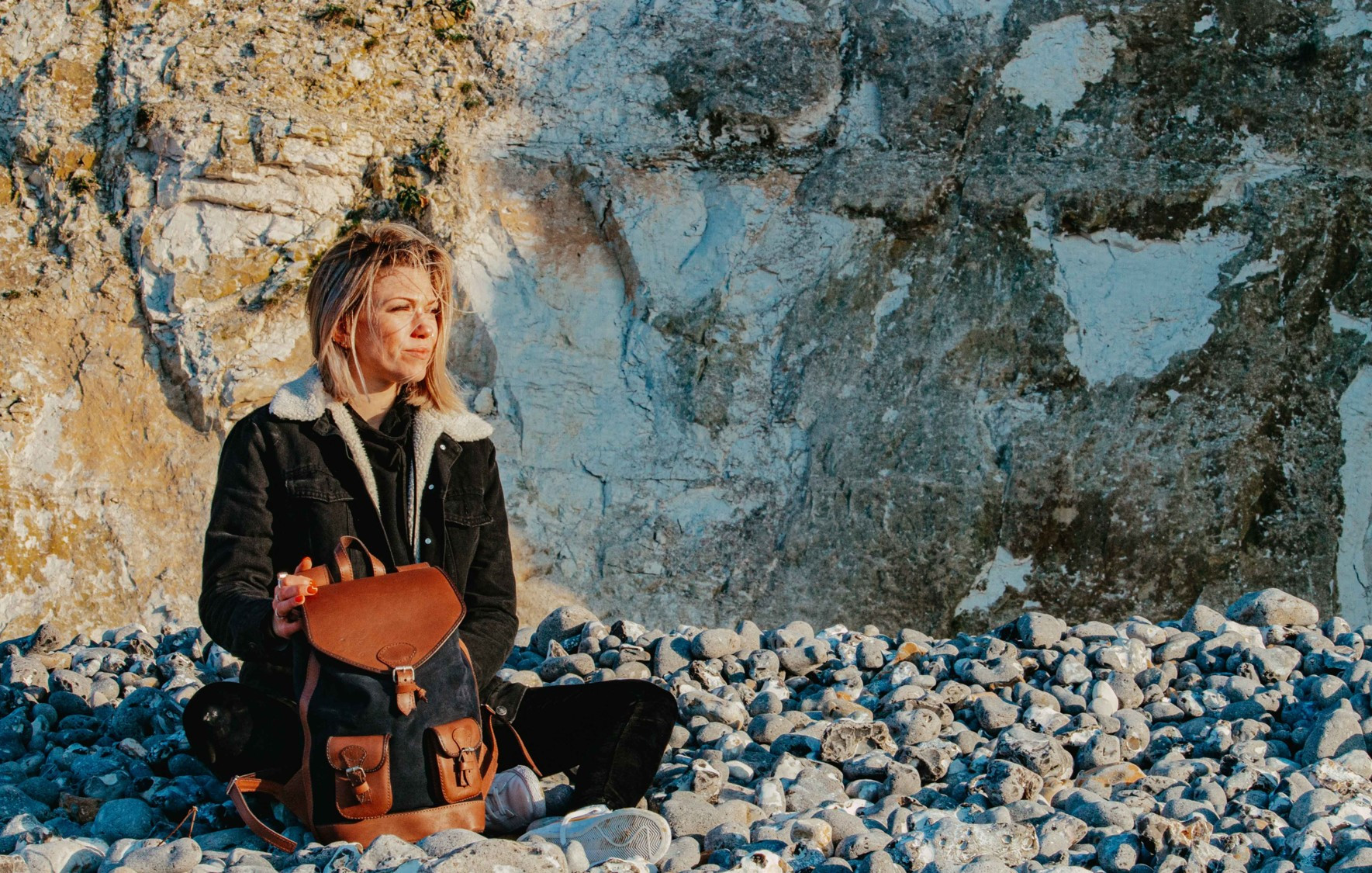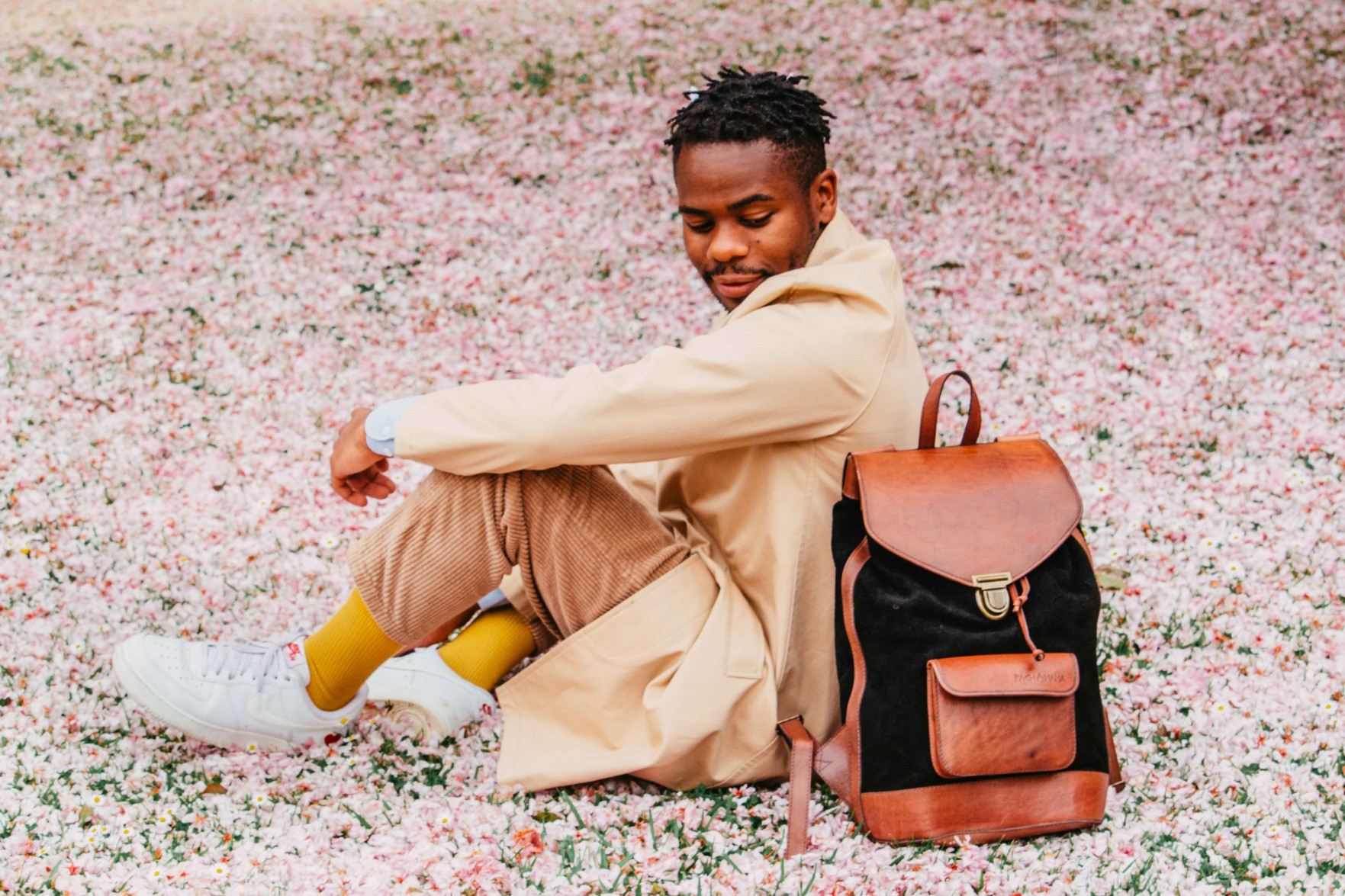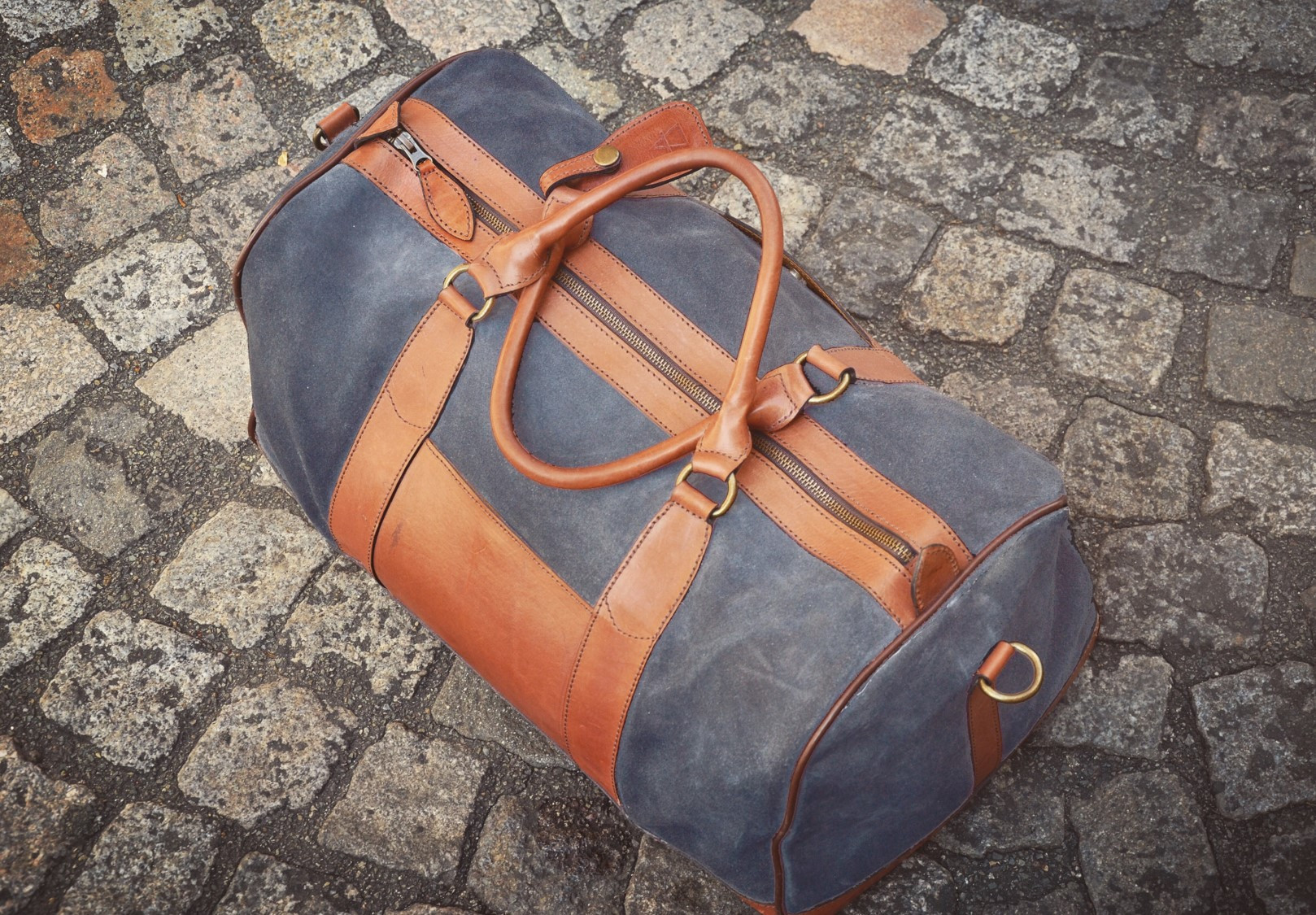Gaétan Bouzac (EDHEC Master 2014) presents Pachamama, an ethical brand of urban leather goods
Tell us about yourself.
My name is Gaétan Bouzac, I graduated from EDHEC with an MSc in Strategy & Organisation in 2014. I currently manage Pachamama, an ethical brand of urban leather goods which I co-founded in 2018. When I finished my studies at EDHEC, I headed off to work in Brussels as a Business Developer. That’s where I met Juliette, the future co-founder of Pachamama! Two years later, as our Belgian experience was coming to an end, we decided to go travelling around the world. We headed off for 8 months, visiting Latin America and Asia.
It was on that trip that we discovered and fell in love with Bolivian craft skills. That’s when we came up with the idea for the Pachamama project!
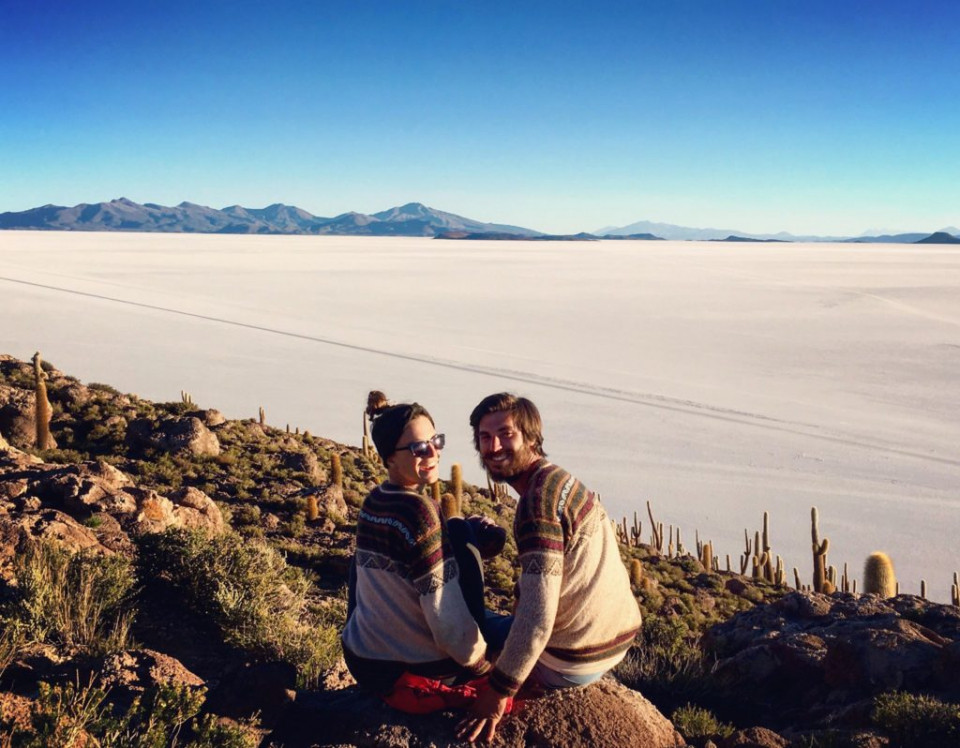
Can you tell us about Pachamama?
Pachamama is an ethical brand of urban leather goods with an inimitable and timeless style.
Designed in France, our bags are then made in Bolivia under fair working conditions. All the bags are handmade using the highest-quality raw materials selected locally.
Our aim is to promote Bolivian craft skills and build a relationship of trust and respect with our craft workers.
We want to use Pachamama to develop a collection of functional and elegant products. For example, our backpacks are perfect for taking to work as well as all your other daily activities!
As well as backpacks, our product range also includes holdalls, travel bags and small leather goods.
Tell us the story behind Pachamama
Pachamama was born during my travels around the world with Juliette in 2017.
While travelling in Bolivia, we admired the skills of leather craft workers and succumbed to their charms. When we returned to France, we decided to take on an entrepreneurial adventure!
I sketched the first backpack models, combining our inspirations and the influences of Bolivian culture. For example, we included a material known as aguayo, a really beautiful traditional Bolivian fabric.
I then returned to Bolivia to study the feasibility of our project alongside the craft workers and produce the first prototypes. When I came back to France a month and a half later, I had three prototypes. We showed them to our friends and families and the verdict was clear: we got very positive feedback!
And so in 2018 we officially launched our first Pachamama backpacks thanks to a crowdfunding campaign on Ulule and then directly on our website.
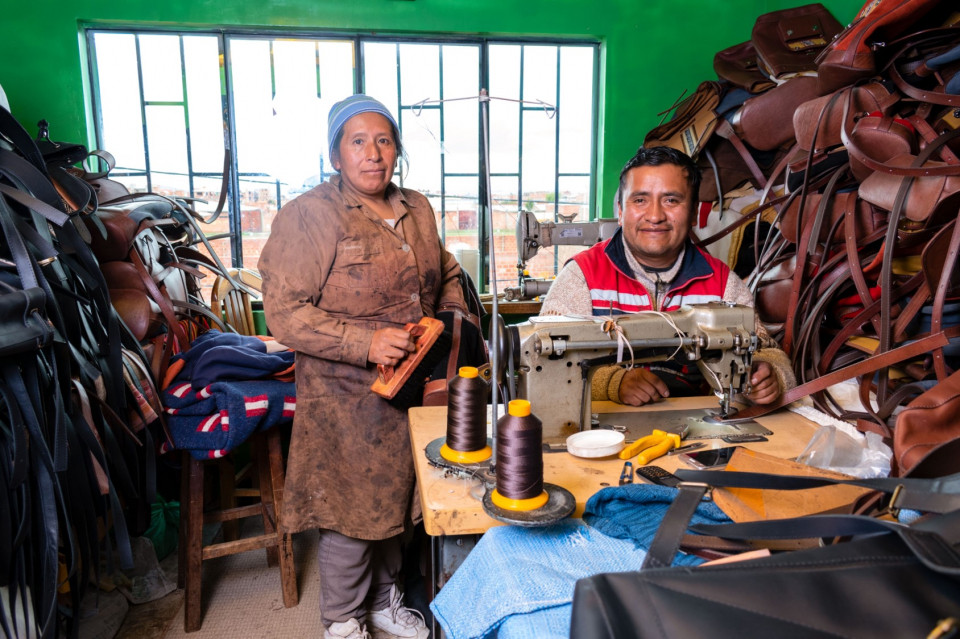
What is your brand’s mission?
The mission behind Pachamama is to promote a sustainable lifestyle and contribute to the development of ethical fashion. We want to produce goods responsibly working closely with our craft workers, and secondly offer our customers high-quality bags that they will be able to keep for a long time.
We also aim to offer our customers the best product at the best possible price. That’s why we decided to develop the project online using a DNVB (digitally native vertical brand) strategy. For a brand, this strategy involves managing and overseeing all of the value chain: from product development to end sales. That way we avoid intermediaries and can offer the consumer an attractive alternative.
Which market(s) do your main customers come from? France, South America, Europe?
Our primary market is in France. That’s where we generate most of our sales via our website. We also have a workshop/boutique in Paris where we can receive customers.
Europe is our secondary market.
The advantage of having a website is that technically we can sell and dispatch our products all around the world. That eliminates a lot of constraints and facilitates the expansion of our project to other countries. Our goal in the medium term is to strengthen our presence in Europe.
Who is your target?
The leather goods market, especially leather backpacks, is currently occupied by:
- high-end brands of good quality but expensive
- very inexpensive brands of poor quality
Faced with this competition, our brand positioning is simple. We are targeting an underexploited niche and offer the right alternative to men and women aged 20 to 60 looking for a quality leather bag that is elegant and practical – at the right price!
We also believe in sustainable fashion. That’s why all of our bags are made responsibly in a fair trade-labelled workshop. This is an essential component in the development of the Pachamama project and responds to the growing demand from consumers.
What ambitions do you have for Pachamama?
Within 3 years, the aim is to reach annual revenue of €1 million.
To achieve that, we will continue to develop our online DNVB strategy, still selling our products in France but also in other European countries.
To reach this target, we are also expanding our product range including a new collection of handbags due to be launched over the next few months!
Lastly, as well as having a website, we would like to open a Pachamama living space on our work premises and a display area where we could welcome customers and present our products. This would allow us to share the brand’s values and universe.
What do you do to promote Bolivian craft skills beyond producing your bags in a workshop in La Paz?
Our project promotes the skills of Bolivian craft workers but also the ancestral craft skills found in Bolivia! This is true of leather craftsmanship. Bolivian leather is a very high-quality material, and its production depends on know-how that has existed for many years in Bolivia.
We also help promote the Aguayo fabric. This subtle and unique skill is one of the symbols of Bolivian craftsmanship! It is currently in decline, and so we are trying to help restore its value by including it in our backpacks as a discreet and elegant insert on the inside flap.
To help future entrepreneurs interested in taking on a “sustainable development” project, can you tell us about your crowdfunding campaign and its impact on the growth of Pachamama?
Crowdfunding is a great solution when you’re looking to get a project off the ground. It was through this system that we were able to officially launch Pachamama.
First, it allows you to test your service or product in “real-world” conditions. In our case, it allowed us to test our backpacks on the general public and confirm that we had got our products right.
Second, it was thanks to crowdfunding that we were able to finance our initial production. It’s a human financing solution and we felt it was particularly well suited to the launch of a responsible fashion project!
What challenges does Pachamama face?
The Pachamama project regularly runs up against new challenges, which we use to continually improve.
The Covid crisis for example forced us to readjust things. We ran into logistical difficulties that caused delays in deliveries to customers. Thankfully, most of them were very understanding given the context, and we are very thankful for that! On the whole, these strange times give us a chance to revise and improve the way we organise our logistics.
This period also reinforced some of the good practices we had already put in place.
An example is our craft production system. Handmade production is slow and costly, but we have always prioritised it as it is a way to really promote the expertise of our craft workers and design high-quality bags.
Finally, it was an advantage during the lockdowns. While many workshops had to close their doors, our craft workers were able to continue to produce our backpacks safely from home. So we were able to keep giving them work and keep our business up and running.
Tell us about your finest success
We are very pleased to have reached a deal for a new partnership just a few days ago with Stéphane Plaza! We will now be an official partner for four TV programmes broadcast daily on M6 in which he takes part.
It represents several hours of broadcasting where our backpacks will be visible. It’s a really great opportunity to develop brand notoriety for Pachamama!
So far it’s one of our best initiatives to gain visibility for Pachamama, so we are really delighted this partnership has come about!
What did you learn or take away from EDHEC that has helped you and your business?
A strong appetite for entrepreneurship! EDHEC, particularly through its associations and teaching, encourages its students to act and develop projects. That was very useful to me when it came to launching Pachamama!
What’s your relationship with EDHEC today?
I benefited from the support of the EDHEC Entrepreneurship Chair when developing my business model. And I still hope to benefit from their invaluable support and perhaps even join the Station F incubator where EDHEC has premises.
And I am of course still in contact with many of my classmates, who have become close friends!
Finally, I also have invaluable contacts among many of the entrepreneurs who have graduated from EDHEC. I often talk to them to exchange advice and best practices. People like Constantin from Pumpkin, Solène from L’atelier de Solène, Adrien from De Rigueur and many others!
More information :
Instagram : https://www.instagram.com/pachamama.bags/
Facebook : https://www.facebook.com/pachamama.bags

Image gallery5
Comments0
Please log in to see or add a comment
Suggested Articles


